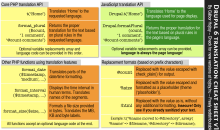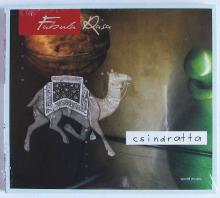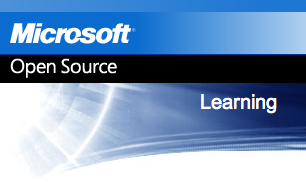The current Drupal process of translating with Gettext PO files, trying to get them into CVS before a release file is generated and then going over hops to update it properly is far from ideal. There are lots of drawbacks, and I started working on a web interface this summer, sponsored by the Google Summer of Code program to improve this situation. Unfortunately the server is not yet ready for prime time (on drupal.org), but there are a number of beta testing servers where some translation teams already try to leverage the cool things this tool offers, so I have lots of feedback on the issue queue.
 In the last two weeks, I spent a sizable amount of my free time on improving the navigation user interface, and adding team features to the localization server, which resulted in a huge changeset, and consequently an 5.x-1.0-alpha2 release of the module, which is now available for download.
In the last two weeks, I spent a sizable amount of my free time on improving the navigation user interface, and adding team features to the localization server, which resulted in a huge changeset, and consequently an 5.x-1.0-alpha2 release of the module, which is now available for download.
I put in a lot of thought into designing an interface which is both easier on the newcomers and on the experienced translators, but honestly I focused more on the experienced translators with as easy access to their work as possible, implementing "quick jump forms", direct linking possibility to the translation filter pages, and so on. Note that I am not a professional interface designer, I make plans up as I go along, based on user feedback and my own focus areas.
While there is still lot of room for improvement, I believe this user interface update makes using the application easier. I tried to concentrate on emphasizing the application aspects, but honestly this is not easy when you don't have control over the theme your application is displayed with. I played with adding a web application theme into the mix and requiring that for Localization Server onwards, but then decided that this can be done later if desired. For now the navigation changes can live well with any theme not exactly focused on web applications, but web sites. I see however that in the not so distant future, I might need to tie the interface to a theme, because that allows proper focus on a usable application interface.
Check out some screenshots of how the current interface looks on my Flickr account. Next up is fixing some remaining bugs, as well as new bugs introduced with this navigation interface update and finally improving on the translation interface itself.






 A few weeks ago, I received a surprise invite from the Hungarian Microsoft office to an event in Redmond, WA, which turned out to be due to my strong involvement with the Hungarian PHP community, but was also luckily connected to my Drupal 6 work. I was lucky to be able to set aside the required days for the so-called Web Development Technology Summit, which seemed to evolve around PHP people and Microsoft technologies. Interesting mix!
A few weeks ago, I received a surprise invite from the Hungarian Microsoft office to an event in Redmond, WA, which turned out to be due to my strong involvement with the Hungarian PHP community, but was also luckily connected to my Drupal 6 work. I was lucky to be able to set aside the required days for the so-called Web Development Technology Summit, which seemed to evolve around PHP people and Microsoft technologies. Interesting mix!

